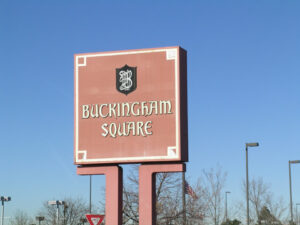Working for a decade at the Woolworth Corporation gave rise to a plethora of captivating anecdotes. Amid numerous opportunities to bolster the company and foster customer loyalty, none proved as potent as the art of price-matching. However, amidst these tactics, there were occasional encounters with customers who harbored unfeasible expectations. One episode stands out in my memory, hailing from the early 1980s when the sensation of the moment was the newly launched game, Trivial Pursuit. The fervor surrounding it was palpable as enthusiasts scrambled to secure their copies.
In the grand scheme of retail, meticulous advertisement planning typically occurs months in advance. Yet, we were caught off guard by the unprecedented demand and popularity of this seemingly overpriced game. It was during the holiday season that we decided, somewhat tentatively, to offer the game on sale. Coincidentally, our competitors were also slashing their prices at the same time.
 Price matching, a novel concept at the time, had gained traction, although not uniformly across the industry. While some stores had dipped their toes into the price match game, many still adhered to the old ways of not matching sale prices. Store #682 nestled within the Buckingham Square Mall in Aurora was a Woolworth’s establishment. Situated across from us was a competitor that would later dominate the variety store landscape — Walgreens. The very game that was causing a commotion was on sale there for $19.99, down from its original price of $24.99.
Price matching, a novel concept at the time, had gained traction, although not uniformly across the industry. While some stores had dipped their toes into the price match game, many still adhered to the old ways of not matching sale prices. Store #682 nestled within the Buckingham Square Mall in Aurora was a Woolworth’s establishment. Situated across from us was a competitor that would later dominate the variety store landscape — Walgreens. The very game that was causing a commotion was on sale there for $19.99, down from its original price of $24.99.
One day, a customer wandered into our store, her gaze fixed on our display of Trivial Pursuit. Politely yet fervently, she implored that we match the sale price offered at Walgreens. Mind you, our price still stood at $24.99. I courteously explained that we were unable to match their price and tactfully suggested that she might want to avail herself of the Walgreens deal. However, this exchange evolved into a circular debate, with her steadfastly advocating for our price match.
After several minutes of back-and-forth, during which I reiterated my recommendation to seize the neighboring opportunity, she dropped a surprising bombshell — Walgreens had sold out of the game. At that moment, it felt as though the narrative had reached a dead end. That’s when inspiration struck, and a wry grin surfaced on my lips.
With a twinkle in my eye, I divulged a tidbit that had, until then, been my secret weapon: “You know,” I began, “when I’m out, the sale price is $18.99.” As the words left my mouth, her expression became highly frustrated and she stormed out, presumably on a quest for the elusive Trivial Pursuit game.
And so, amidst the hustle and bustle of the holiday season, a humorous exchange transformed what could have been a routine customer interaction into a memorable tale that continues to be a cherished anecdote from my time at the Woolworth Corporation.
The story is true, ChatGPT is used to assist with readability.
